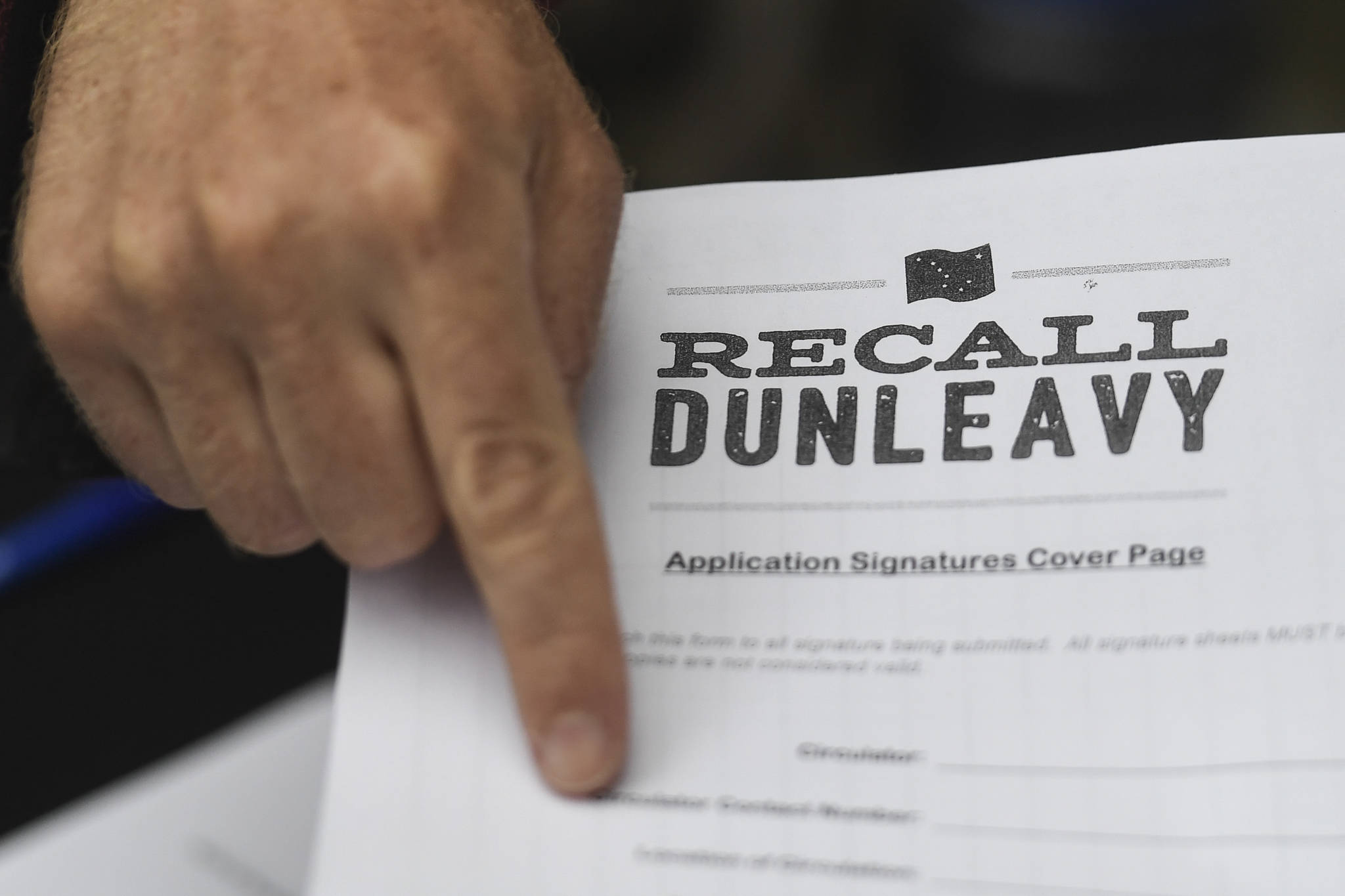BREAKING: An Anchorage judge on Friday morning reversed the Division of Election’s rejection of the Recall Dunleavy campaign application.
Anchorage Superior Court Judge Eric Aarseth made the ruling after hearing arguments Friday morning.
The Dunleavy administration said it will appeal a decision to the Alaska Supreme Court.
Aarseth says he will hope to issue a final written decision by the end of the business day on Monday, Jan. 13. That decision can then be appealed and the process can move on to the state supreme court.
Read more here: Judge rules in favor of Recall Dunleavy campaign, case heads to Alaska Supreme Court
***
Live coverage of the oral arguments being heard in Anchorage Superior Court below:
***
11:45 a.m.
To the DOE’s argument that specific harm must be demonstrated in a failure to perform duties, Aarseth says that is not a requirement.
“Specific definition of harm is not a requirement, whether or not it is an important failure or not, the nature of the failure is up to the voters to weigh,” he says.
The court is of the opinion that it does not have the discretion to create more requirements, Aarseth says.
11:30 a.m.
The recall process is ultimately a political process, Aarseth says, it is not for the judiciary to decide whether or not a governor should remain in office.
Court’s determination is fairly straight-forward, Aarseth says.
There are Supreme Court and Superior Court decisions that have touched on the recall issue. Superior court cases are not binding on the court but they are instructive to requirements, Aarseth says.
In the past the legislature has reacted to court decisions, going back and changing laws in order to clarify intent. But lawmakers have not done so in cases regarding the recall process, according to Aarseth.
11:25 a.m.
Judge Aarseth says the court is ready to render a decision. The court relies heavily on past cases ruled by the Alaska Supreme Court, Aarseth says.
11:15 a.m.
The court is taking a 10 minute break, and will return at 11:25 a.m.
11:10 p.m.
The recall campaign argued Dunleavy violated law by refusing to appoint a superior court judge within 45 days.
The state rejected this claim saying there wasn’t a showing of harm, Lindemuth says. But that is not a requirement for an application.
“This is another area where (the state) is ratcheting up precedent,” Lindemuth said. The Supreme Court has already rejected this requirement, she says.
The Attorney General and the Division of Elections serve at the pleasure of the governor who appointed them Lindemuth says, which is why they’ve raised the standards of recall requirements.
11 a.m.
Former Attorney General Jahna Lindemuth is making arguments for the plaintiff, Recall Dunleavy.
She says the state denied the application by “changing the rules of the game.” Clarkson raised standards that had been set in the past, Lindemuth argues.
She is walking through previous cases where precedents were set, sometimes by the state Supreme Court, which the campaign’s allegations were based on.
Recall opponents have “overstated” the requirements of a recall application that are not required under Alaska law. Alaska law requires allegations be limited to 200 words and the standards used by the state in rejecting the applications, cannot be sufficiently met under that limit.
10:50 a.m.
Judge Eric Aarseth is speaking to lawyers, covering what the day’s process will be. He says he will try to make a decision today because it is likely the decision will be challenged and go to the state Supreme Court. He wants to give each side enough time to make their arguments sufficiently but to also move the process along as quickly as possible.
Each side will be given 30 minutes each to make their arguments.
10:45 a.m.
Lawyers for the recall campaign are giving their opening arguments. The campaign made several allegations against Gov. Mike Dunleavy to argue his lack of fitness for the governorship. Those allegations were rejected by the Department of Law and Attorney General Kevin Clarkson.
Lawyers for the campaign are going through the arguments detailing why each allegation is legally sufficient. They are citing various past cases which set precedent for the legal basis of those arguments.
10 a.m.
The Recall Dunleavy campaign filed a complaint against the Alaska Division of Elections for its rejection of the campaign’s application for recall petition. If the court rules in the campaign’s favor, the application for a recall petition will be accepted and the signature gathering process for a petition will begin.

